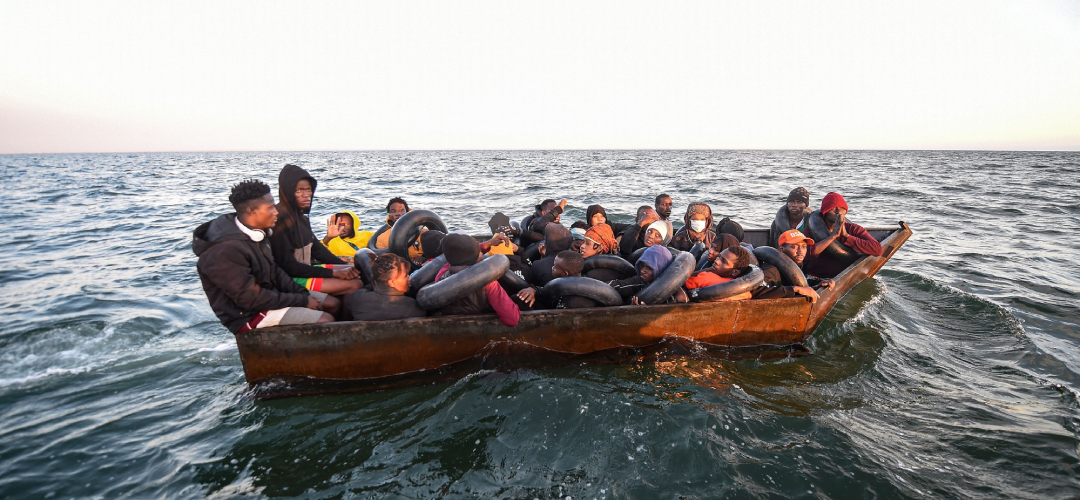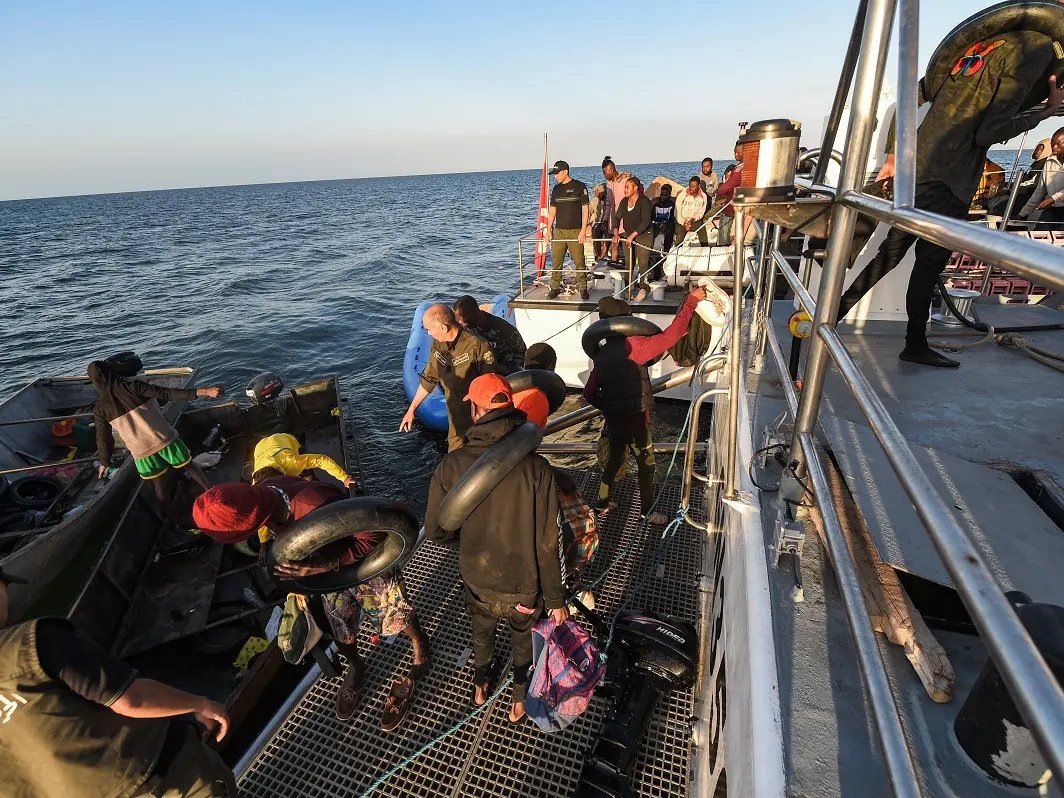Playing With Migrant Lives
July 29, 2023 | Expert Insights

While global migration has been a fact of life even before recorded history began, its modern version has much to do with the economic inequity that exists between the Global North and South and the underlying tensions between the rich and the poor.
With conflicts stalking various corners of the globe and climate events making regions uninhabitable, migration has become a much bigger issue.
Last week, Italy, one of the worst impacted European nations, held a conclave of Mediterranean, Sub-Saharan Africa and Middle Eastern countries to resolve the issues around the illegal migration swarming European waters. Participants, along with the EU and IMF representatives, included Tunisia, Turkey, Libya, Algeria, Cyprus, Greece, Saudi Arabia, Ethiopia, and UAE.
Background
The current phase of migration from Africa into Europe has its origin in 2015, when the unrest caused by the Arab Spring was reaching its culmination point.
The Mediterranean Sea has been a pathway of human movement between North Africa and Southern Europe since time immemorial. As North African and West Asian governments began to destabilise, delicately balanced economies collapsed, and law and order disintegrated, mass movement of people began to take place. These people were and still are fleeing persecution, and abject poverty, in their own countries. They are joined by a horde of Asians seeking greener pastures in Europe and North America in what is termed as ‘economic migration.’
Unlike the settler colonies of the United States, Canada and Australia, the European mainland has no history of accepting large numbers of immigrants. This is especially true if these migrants come from completely different cultures. So, as expected, tensions flared up as migrant flows increased. Far-right and even some conventional parties in all the major European countries try to portray the migrants as the source of all problems.
The refugee situation provoked in Ukraine after the Russian invasion brought into stark contrast the treatment meted out to non-European, non-white migrants crowding the shores of Europe.

Analysis
The migration crisis has been a collective failure of Europe. This crisis has been years in the making. No one has ever taken any responsibility. Each side has passed the blame on to the other.
Out of all of Europe, southern European countries are the most vulnerable to illegal migration. This is the soft underbelly of the continent. Unlike Northern European countries, they do not have the luxury of distance from the major migrant routes.
The Southern European economies are also much worse off than their Northern European counterparts. In recent years they have gone through quite a few economic shocks. The Covid-19 pandemic and Russia's invasion of Ukraine have further added to this pressure. The EU has often had to bail these countries out. These countries just have enough resources to look after their citizens. They cannot afford to take in many foreigners solely for humanitarian purposes. Still, they have tried to do something in this area. And the resultant strain on their economies has been there for all to see.
From all this, it looks like the more developed countries in Europe must take more responsibility for tackling this issue. But here again, national interest continues to trump any nebulous humanitarian agenda. Migrants are good so long as they integrate and do not take away jobs from the natives. Otherwise, they are a burden and even a danger.
The financial powerhouse of the EU is Germany which should play a leading role like it has been doing with the Ukrainian refugees who are being welcomed into Germany with open arms. The clear differential between European and non-European refugees could not be clearer.
Brexit Britain has become more isolationist. The current Conservative government is dominated by hardliners on migration. Compared to other European countries, Britain is relatively secure. It has the protective barrier of the English Channel on its side. Crossing this Channel is an uphill task at any time of the year. It is more challenging for refugees who have crossed the whole of Europe to reach the French coast to cross over into the UK. However, desperate people are still making the dangerous crossing. The British government has tried to deport the vulnerable refugees who somehow reached its shores to Rwanda. The judiciary had to strike down this law as being against basic human rights.
The Scandinavian countries considered the happiest in the world are also closing their doors. Refugees have much less chance to integrate successfully to the standards of the majority population in these countries with minuscule populations and rigid civic rules. Here far-right parties are growing in strength.
Italy has been compelled to take this initiative as it has been one of the countries most impacted. The right-wing coalition in power in Rome is trying to make good its election promise that it would block the flow of illegal migrants into their country. But so far, the coalition government is failing as some 80000 migrants have already landed on the Italian shore compared to 34,000 in 2022.
Rome had recently signed a partnership deal with Tunisia, one of the popular launch pads for this immigration, promising almost $1.1 billion to combat the vast human trafficking rings that operate from Tunisian soil, with little or no government interference.
The Italian Prime Minister unveiled a four-point action plan to curb the inflow of illegal migrants-going after the organised crime syndicates that run the smuggling operations, better managing the flow of migrants, supporting the refugees, and helping the countries of origin. UAE has agreed to help the countries of origin with a grant of 100 million Euros.
Challenges for some can turn out to be opportunities for others. Tunisia, an authoritarian state, is enjoying its moment in the sun, having been made a partner in the “Fortress Europe” programme. The EU thinks the Tunisian buffer will contain the refugee problem within Africa itself. However, this is a high-stakes policy. If Tunisia implodes under pressure from the refugee population, then the EU could have a bigger problem on its hands. Far off Rwanda, which had agreed to 'host' illegal migrants for the UK, was also doing it for financial benefits.
Already refugees are coming in through war-torn Libya. The Tunisian buffer is not working. This policy of burying the head in the sand will not work for Europe.
Assessment
- The "Fortress Europe" policy is not going to stop the refugees. They are going to come anyway out of their desperation and hopelessness. This is a Europe-wide problem. Each country cannot look at this from its own parochial end and hope to pass it on to its neighbours. Eventually, they will be bitten back even harder. European nations need to come together and solve this problem head-on in a just and fair manner before it becomes too late.
- As long as this migrant crisis continues, it will tarnish the EU's image globally. The EU cannot talk about human rights violations in other parts of the world when serious violations are occurring in its backyard.
- The source of this crisis is the various conflicts taking place in the African continent and around the world. These must be addressed to nip the problem in the bud.








Comments